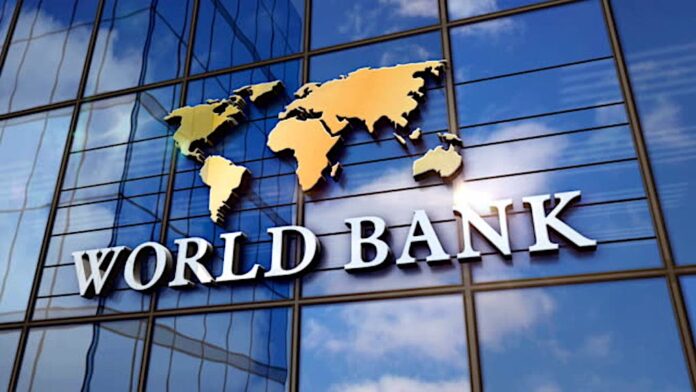
By Prof. Samuel Lartey [email protected]
Introduction
In a world still reeling from economic disruptions caused by the global pandemic, developing countries like Ghana have found themselves on the frontline, battling a slew of economic challenges. The Ghanaian economy has been under severe pressure from rising inflation to a depreciating currency and mounting public debt. However, a recent development has injected a much-needed dose of optimism into the nation’s economic outlook.
The World Bank’s announcement of a US$1 billion disbursement over the next 12 months, aimed at stabilizing Ghana’s economy and supporting private businesses, marks a pivotal moment. This article examines the implications of this financial lifeline on the citizens, economy, and the political landscape as the country gears up for the 2024 general elections.
A Strategic Lifeline: The World Bank’s Commitment
The World Bank’s relationship with Ghana is one of long-standing partnership and support, with the institution consistently backing the nation’s developmental agenda through financial assistance, policy advice, and technical expertise. The latest commitment of US$1 billion, as disclosed by Robert O’Brien, the World Bank’s Country Director for Ghana, on PM EXPRESS BUSINESS Edition, is a continuation of this support. This amount is in addition to the US$1.6 billion already disbursed over the past year, underscoring the World Bank’s confidence in the Ghanaian government’s economic management and reform efforts.
The disbursement is particularly significant given the timing. As Ghana approaches its 2024 general elections, the economy will undoubtedly be a central issue in the political discourse. The World Bank’s financial support, therefore, carries not just economic weight, but political implications as well. This move could influence voter perceptions of the current government’s handling of the economy, shaping the narrative as the election date draws nearer.
Economic Stabilization and Growth: A Beacon of Hope
The Ghanaian economy, despite its resilient foundation, has faced formidable challenges in recent years. Global supply chain disruptions and domestic policy missteps have led to high inflation, a weakening cedi, and rising debt levels. These issues have directly impacted the everyday lives of citizens, increasing the cost of living and eroding purchasing power.
The World Bank’s $1 billion disbursement offers a beacon of hope. By providing the government with the financial resources needed to stabilize the economy, this support could help curb inflation, strengthen the currency, and reduce the fiscal deficit. These outcomes would directly benefit citizens, potentially leading to lower prices for goods and services, increased job opportunities, and improved public services.
Furthermore, the World Bank’s funds are expected to be channeled into critical sectors such as infrastructure, education, health, and agriculture. By addressing bottlenecks in these areas, the government can create a more enabling environment for private sector growth. This, in turn, could spur economic diversification, reduce unemployment, and drive sustainable development.
Implications for the 2024 General Elections
As Ghana heads into its 2024 general elections, the state of the economy will be a defining issue. The incumbent government, which has been grappling with economic challenges, now can leverage the World Bank’s financial support to demonstrate its commitment to economic recovery and growth. If managed effectively, the disbursement could strengthen the government’s electoral prospects by showcasing tangible improvements in the economy.
However, this financial boost also comes with political risks. Should the funds be mismanaged or fail to produce the expected outcomes, it could lead to voter disillusionment and erode trust in the government. Opposition parties are likely to scrutinize the use of these funds closely, making it a focal point of their campaign strategies.
The timing of the disbursement is also critical. With the elections just months away, the government will need to quickly translate this financial support into visible economic improvements. The ability to deliver on promises of economic stability and growth will be crucial in swaying undecided voters and maintaining the support of the electorate.
A Political and Economic Balancing Act
Beyond the immediate economic benefits, the World Bank’s support has broader implications for Ghana’s political landscape. The disbursement could be seen as an endorsement of the government’s economic policies, potentially boosting its credibility on the international stage. However, it also places the government under increased scrutiny, both domestically and internationally, to ensure that the funds are used effectively and transparently.
As Ghana prepares for the 2024 elections, the World Bank’s financial commitment adds a new dimension to the political narrative. The government’s ability to manage these funds and deliver economic results will be a key factor in the upcoming elections. Success could bolster the ruling party’s chances of re-election, while failure could provide ammunition for the opposition.
Conclusion
The World Bank’s decision to inject US$1 billion into Ghana’s economy is more than just a financial commitment; it is a strategic move with far-reaching implications for the nation’s economic stability, the welfare of its citizens, and the political dynamics ahead of the 2024 general elections. As the government prepares to deploy these funds, the eyes of the nation and indeed the world will be watching closely.
For the citizens of Ghana, this disbursement offers hope for a more stable and prosperous future. For the economy, it presents an opportunity to regain its footing and chart a path towards sustainable growth. And for the political arena, it sets the stage for a high-stakes battle, where the management of these funds could very well determine the outcome of the 2024 elections.
In the coming months, the effectiveness of the government’s economic strategies, supported by the World Bank’s financial lifeline, will be put to the test. The results will not only shape the future of Ghana’s economy but also the political destiny of the nation as it approaches a critical electoral juncture.









